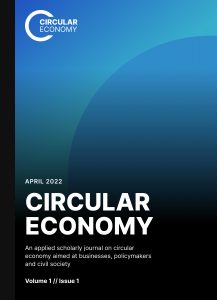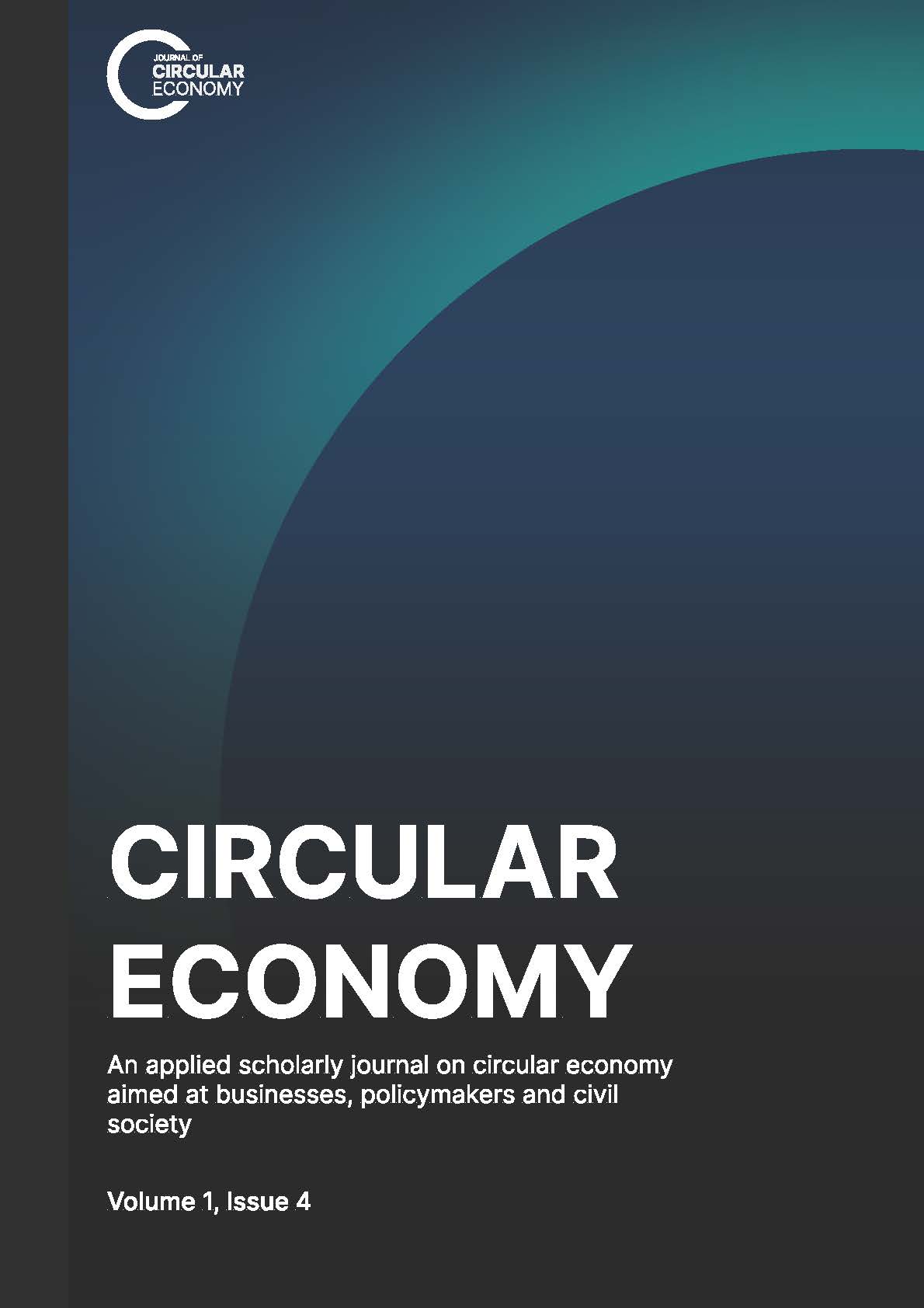Abstract
Keywords
References
Arnold, M. 2021. The challenging role of researchers coping with tensions, dilemmas and paradoxes in transdisciplinary settings. in: SI Transdisciplinary research approaches for sustainable development. Sustainable Development. doi.org/10.1002/sd.2277.
CEI. 2021. Circular Economy Roadmap for Germany.Cheng, Ichin. 2018. Why Asia matters: Circular Economy in Japan, China and Taiwan, in Martin Charter (Ed.). Designing for the Circular Economy. Springer, S. 54-69.
Chauhan, Chetna, Parida, Vinit, Dhir, Amandeep 2022. Linking circular economy and digitalisation technologies: A systematic literature review of past achievements and future promises, Technological Forecasting and Social Change, Vol. 177, 121508, https://doi.org/10.1016/j.techfore.2022.121508.
Corvellec, Hervé, Stowell, Alison F., Johansson, Nils. 2022. Critiques of the circular economy. Journal of Industrial Ecology 26. 421–432. https://doi.org/10.1111/jiec.13187.
van Dorp, K. 2002, Tracking and tracing: a structure for development and contemporary practices, Logistics Information Management, Vol. 15 No. 1, pp. 24-33. https://doi.org/10.1108/09576050210412648.
Friedrich, B. 2020. Sustainable Utilization of Metals: Processing, Recovery and Recycling. MDPI – Multidisciplinary Digital Publishing Institute.
Greer, Rachel, Wirth, Timo von, Loorbach, Derk. 2021. The Waste-Resource Paradox: Practical dilemmas and societal implications in the transition to a circular economy. Journal of Cleaner Production, 303. 126831. https://doi.org/10.1016/j.jclepro.2021.126831.
Hobson, Kersty, Lynch, Nicholas. 2016. Diversifying and de-growing the circular economy: Radical social transformation in a resource-scarce world, Futures, Vol. 82, 15-25, https://doi.org/10.1016/j.futures.2016.05.012.
Moreau, V. et al. 2017. Coming Full Circle. Why Social and Institutional Dimensions Matter for the Circular Economy. Journal of Industrial Ecology. Vol. 21, Nr 3. 497-506. https://doi.org/10.1111/jiec.12598
Roberts, H., Zhang, J., Bariach, B. et al. 2022. Artificial intelligence in support of the circular economy: ethical considerations and a path forward. AI & Soc. https://doi.org/10.1007/s00146-022-01596-8.
Stephan, G. 2022. Circular Economy: Illusion or First Step towards a Sustainable Economy: A Physico-Economic Perspective. Sustainability, 14, 4778. https://doi.org/10.3390/su14084778.
Toker, K., Görener, A. 2023. Evaluation of circular economy business models for SMEs using spherical fuzzy TOPSIS: an application from a developing countries’ perspective. Environ Dev Sustain 25, 1700–1741. https://doi.org/10.1007/s10668-022-02119-7.
Trento, L. R. et al. 2021. Industry-retail symbiosis: What we should know to reduce perishable processed food disposal for a wider circular economy. Journal of Cleaner Production, 318 doi:10.1016/j.jclepro.2021.128622


